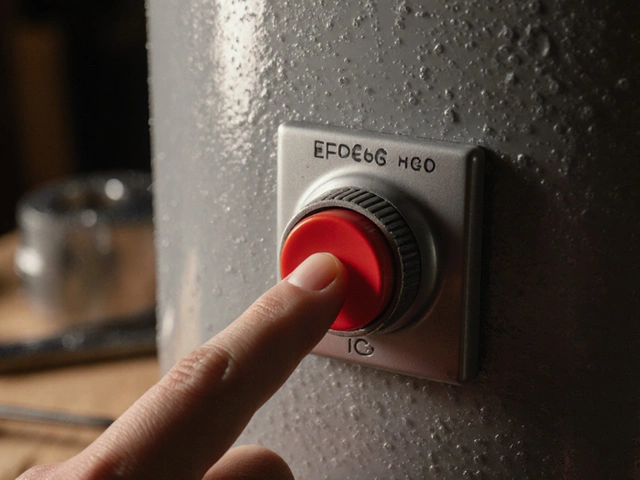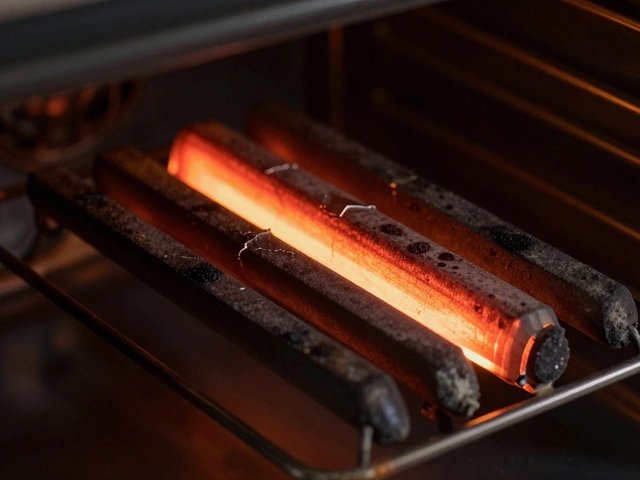Got a freezer that’s not keeping things cold? You’re not alone. Most problems are simple to spot and can be solved without calling a technician. This guide walks you through the most common freezer hiccups, gives you clear steps to fix them, and tells you when it’s time to get professional help.
Before you start pulling things apart, make sure the freezer is actually plugged in and the outlet works. A tripped circuit breaker or a loose plug can be the sneaky culprit. Next, look at the temperature setting. Many people set it too warm by mistake – aim for -18°C (0°F) for optimal performance. If the door seal looks worn or isn’t closing tightly, warm air can seep in and raise the temperature.
Clean the condenser coils if they’re dusty. Dust acts like an insulator and forces the compressor to work harder, which can lead to overheating and reduced cooling. Unplug the freezer, pull it away from the wall, and use a vacuum brush or a soft brush to remove the grime. This quick clean often restores a sluggish freezer to full strength.
Freezer not cooling at all: If the temperature stays above -10°C, the compressor might be failing, or the start relay could be stuck. Listen for a humming sound when the freezer runs – no sound usually means the compressor isn’t turning on. You can test the start relay with a multimeter; replace it if it’s faulty.
Ice buildup or frost: Excess frost often points to a defrost system issue. Check the defrost timer, heater, and thermostat. If the timer isn’t advancing, the freezer won’t enter the defrost cycle and ice will keep piling up. A quick timer reset (usually done by turning the unit off for a few minutes) can solve the problem.
Water pooling at the bottom: This usually means the drain tube is clogged. Locate the drain hole inside the freezer, usually at the back, and clear it with a pipe cleaner or warm water. A clear drain lets the defrost water flow out as intended, stopping the pool from forming.
Strange noises: Clicking, buzzing, or rattling can be normal as the compressor cycles, but loud clanking may indicate a loose fan or a worn motor bearing. Unplug the freezer, remove the back panel, and check that the fan blades spin freely. Tighten any loose screws or replace the fan if it’s damaged.
If none of these steps help, it’s likely a sealed‑system issue like a refrigerant leak. That kind of repair needs a certified technician and special tools, so it’s best to call a pro at that point.
Keeping your freezer in top shape also means regular maintenance: clean the coils every six months, check door seals yearly, and avoid overloading the unit so air can circulate. A few minutes of preventive care can save you big headaches later.
Remember, most freezer problems are easy fixes you can do yourself. When in doubt, safety comes first – always unplug the appliance before working on it. With the right steps, you’ll have your freezer running cold again in no time.

Exploring the value of repairing a freezer involves assessing various factors, such as the cost of repairs, the appliance's age, and the efficiency improvements of newer models. Understanding common freezer problems can help homeowners decide whether a repair is worthwhile. The decision should account for both economic and environmental perspectives, guiding when to repair or replace.

Wondering how long you can cope with a broken boiler? Get clear facts, repair timelines, survival tips, and legal details so you don’t get left in the cold.

Learn how to properly reset your water heater's safety button - and why holding it down won't help. Find out what really causes it to trip and when to call a professional.

Learn how to tell if your electric oven element is bad with simple visual checks and a multimeter test. Save time and money by diagnosing the issue yourself before calling a repair technician.

If your extractor fan has suddenly stopped working, it's not just annoying but can lead to bigger problems like excess moisture and lingering odors. This article will delve into common issues with extractor fans and provide practical solutions you can try at home. Learn about potential causes, from power supply problems to sensor malfunctions, along with straightforward fixes. Some tips might even save you from calling in a professional. Get your fan back up and running with ease!

Learn fast DIY steps to diagnose and fix a non‑working water heater, plus safety tips, maintenance advice, and when to call a professional.